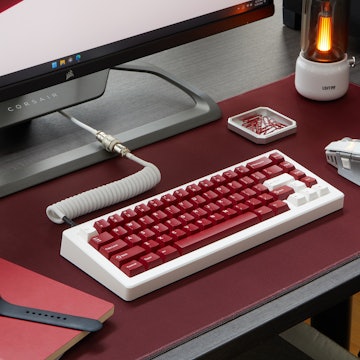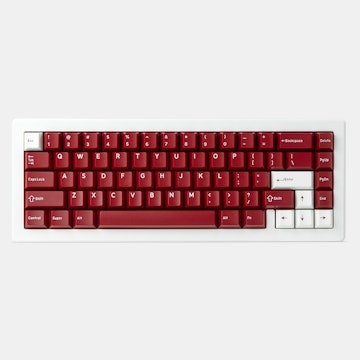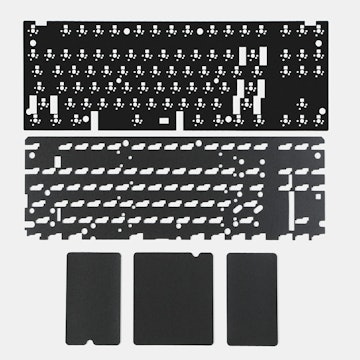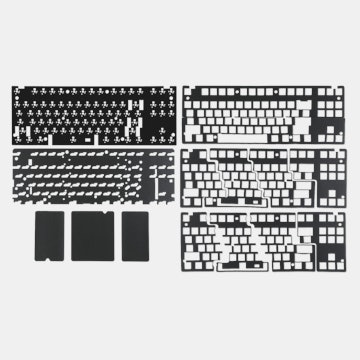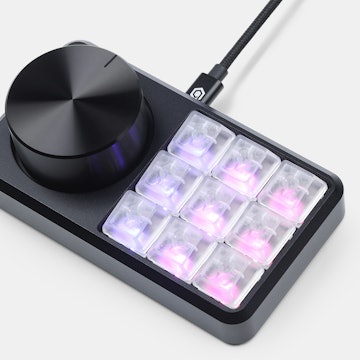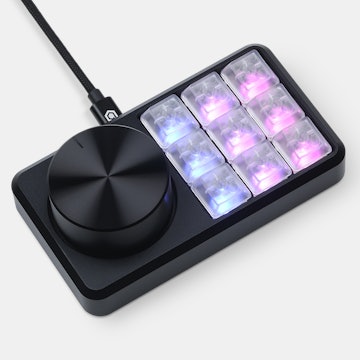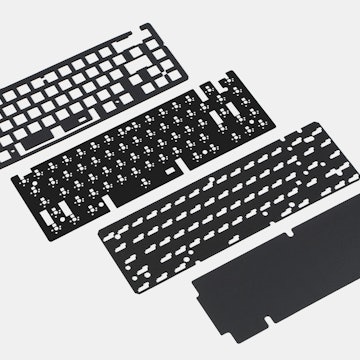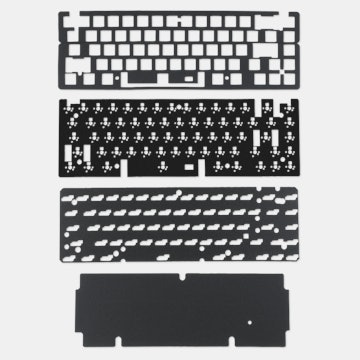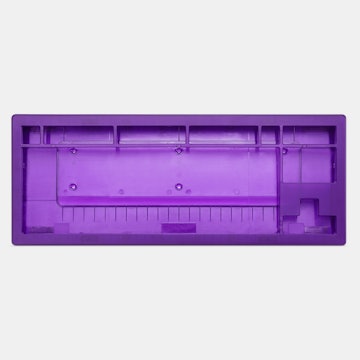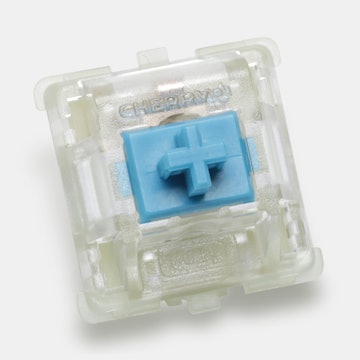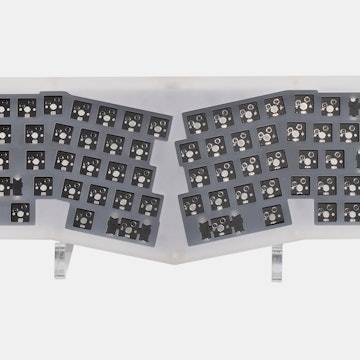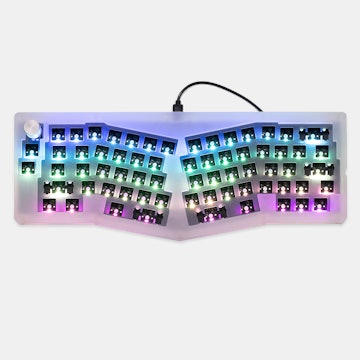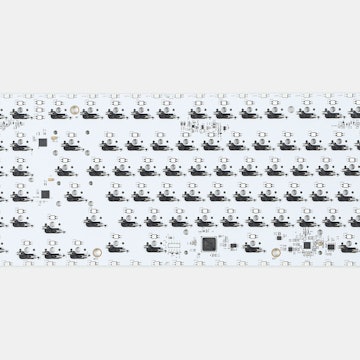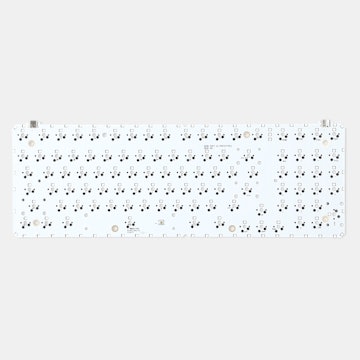Click to view our Accessibility Statement or contact us with accessibility-related questions










Showing 1 of 191 conversations about:

reddcube
0
May 16, 2016
bookmark_border
Why is it using a Mini USB port? I am not joining this drop because of that. A Micro USB or USB-B would be prefered over Mini USB. It's 2016 use a USB-C

rollyplank
30
May 16, 2016
bookmark_border
nomikosThat wasn't a very thoughtful way to answer the question. I think that it's actually a good question to ask.
Mini-USB is a great balance of size and strength. The micro-usb is great because it's tiny, but it's not very strong. I know that I have bent micro connectors by accident. USB-C is awesome because it's reversible, faster, and can deliver more power, but it's still pretty thin. It's fine, but I can see a reason to want a stronger connector.
For just a little more space, the mini is way more rigid in the vertical direction! If I tilt my Leopold FC660C backwards onto the cable, I'm definitely not worried about snapping off the mini-usb connector.
USB-B is even better, but it's massive.
Mini-USB is a great balance of size and strength. The micro-usb is great because it's tiny, but it's not very strong. I know that I have bent micro connectors by accident. USB-C is awesome because it's reversible, faster, and can deliver more power, but it's still pretty thin. It's fine, but I can see a reason to want a stronger connector.
For just a little more space, the mini is way more rigid in the vertical direction! If I tilt my Leopold FC660C backwards onto the cable, I'm definitely not worried about snapping off the mini-usb connector.
USB-B is even better, but it's massive.
shadowdude777
101
May 16, 2016
bookmark_border
nomikosAnd thank god that it's going away. I trust people like matt3o more than I trust the people who make "99.5% of keyboards", and he used micro-USB on the Whitefox. The K-Type is going to have USB-C, too. Use ANYTHING but mini. It's less durable than micro, and it's deprecated for literally that exact reason.
Unlike everyone else here who is incorrectly assuming that micro is less durable than mini, I have official specs for you. http://www.usb.org/developers/docs/devclass_docs/CabConn20.pdf
Go to page 6, and it shows under durability: 5000 cycles for Mini “B” 10,000 cycles for Micro series
The reason why all of your micro cables break is because micro is designed to have the cable bear the brunt of the stress (which is why it has those two hooks), not the port. That's why it's so much more durable.
tl;dr: I'm also not buying this because it's 2016 and mini USB has been deprecated since shortly after Stonehenge was built.
Unlike everyone else here who is incorrectly assuming that micro is less durable than mini, I have official specs for you. http://www.usb.org/developers/docs/devclass_docs/CabConn20.pdf
Go to page 6, and it shows under durability: 5000 cycles for Mini “B” 10,000 cycles for Micro series
The reason why all of your micro cables break is because micro is designed to have the cable bear the brunt of the stress (which is why it has those two hooks), not the port. That's why it's so much more durable.
tl;dr: I'm also not buying this because it's 2016 and mini USB has been deprecated since shortly after Stonehenge was built.
shadowdude777
101
May 16, 2016
bookmark_border
rollyplankPlease see: https://www.massdrop.com/buy/ve-a/talk/425676
As I cited, micro is far more durable than mini. The micro CABLE is less durable than mini, by design. One of the parts has to bear the stress, and I'd rather my $2 Monoprice cable break than the port on my $400 keyboard.
As I cited, micro is far more durable than mini. The micro CABLE is less durable than mini, by design. One of the parts has to bear the stress, and I'd rather my $2 Monoprice cable break than the port on my $400 keyboard.

rollyplank
30
May 16, 2016
bookmark_border
shadowdude777@shadowdude777! Thanks for bringing that up. USB spec defines durability by the number of mating cycles, whereas I am talking about the actual breaking force of the connector (regardless of the gender). Mechanical Shock spec is pretty close, but as far as I'm aware there is no spec for mechanical load. If there is, then I'd love to hear about it!
In general (not a rule!), board mounted connectors are the strongest part of the mechanical linkage. As the connectors get bigger (Like USB-B), the connector is so strong that usually the FR4, the solder pads, or the actual wire connections in the cable will break before that chuck of metal called USB-B starts to yield. I have bent the pins on a smd micro-usb, I've bent the housing on a micro-usb cable, but I've never bent the housing on a smd micro-usb.
@shadowdude77777, I definitely agree - I'd much rather have my cable break :)
In general (not a rule!), board mounted connectors are the strongest part of the mechanical linkage. As the connectors get bigger (Like USB-B), the connector is so strong that usually the FR4, the solder pads, or the actual wire connections in the cable will break before that chuck of metal called USB-B starts to yield. I have bent the pins on a smd micro-usb, I've bent the housing on a micro-usb cable, but I've never bent the housing on a smd micro-usb.
@shadowdude77777, I definitely agree - I'd much rather have my cable break :)
shadowdude777
101
May 17, 2016
bookmark_border
rollyplankYou raise a good point. Personally though, I've never had a port break from me bending and breaking the housing. It's always just "mysteriously broken", which would just be too many mating cycles occurring for that port.
DmitryV
14
May 18, 2016
bookmark_border
rollyplank"The micro-usb is great because it's tiny, but it's not very strong."
You can easily find official test results. MicroUSB is SIGNIFICANTLY more reliable, compared to microUSB. (but with proper force applied, you can damage almost everything)

rollyplank
30
May 18, 2016
bookmark_border
DmitryVThanks for chiming in, @DmitryV ! I assume that you meant to say: "MicroUSB is SIGNIFICANTLY more reliable, compared to miniUSB".
Just to clarify, when you say reliable, we are not talking about mating cycles, right?
There's a spec document called "Universal Serial Bus Micro-USB Cables and Connectors Specification to the USB 2.0 Specification, Revision 1.01" (what a mouthful!) that specs: insertion and extraction force, peel strength (150 N !), and wretching force for the micro-usb connector. Wretching force is what I'm talking about! "The plug can be damaged, but in such a way that the receptacle does not sustain damage: 25 - 50N"
Sadly, I can't find a similar spec for mini-usb. If you see one, let me know! I found this interesting explanation of the history behind mini-usb and micro-usb: http://electronics.stackexchange.com/questions/18552/why-was-mini-usb-deprecated-in-favor-of-micro-usb
I'd like to also note that my opinion on mini-usb being stronger than micro-usb is purely anecdotal and may be influenced by what sorts of gadgets use which connector. Really my only mini plugs are on keyboards, external harddrives, and music production equipment, most of which don't get moved around often. On the other hand, I have way more devices with micro-usb and most get moved often!
There's a spec document called "Universal Serial Bus Micro-USB Cables and Connectors Specification to the USB 2.0 Specification, Revision 1.01" (what a mouthful!) that specs: insertion and extraction force, peel strength (150 N !), and wretching force for the micro-usb connector. Wretching force is what I'm talking about! "The plug can be damaged, but in such a way that the receptacle does not sustain damage: 25 - 50N"
Sadly, I can't find a similar spec for mini-usb. If you see one, let me know! I found this interesting explanation of the history behind mini-usb and micro-usb: http://electronics.stackexchange.com/questions/18552/why-was-mini-usb-deprecated-in-favor-of-micro-usb
I'd like to also note that my opinion on mini-usb being stronger than micro-usb is purely anecdotal and may be influenced by what sorts of gadgets use which connector. Really my only mini plugs are on keyboards, external harddrives, and music production equipment, most of which don't get moved around often. On the other hand, I have way more devices with micro-usb and most get moved often!
DmitryV
14
May 19, 2016
bookmark_border
rollyplank@rollyplank Actually, it is more reliable in both ways (or, in different words, "mating cycles" test actually tests different aspects of reliability). It was designed in a way that in case of misuse or too much force, only connector (plug on the cable) will be damaged, but not the recipient part in the device.
I have experience with a big mobile-phone repair plant and technicians confirm that with microUSB they have extremely rare cases of damaged connector on the PCB. It was more common with miniUSB and old proprietary connectors.
"my opinion on mini-usb being stronger than micro-usb is purely anecdotal" Agree. My experience shows the same. This is why I'm so surprised that people are still using miniUSB in new projects.
"my opinion on mini-usb being stronger than micro-usb is purely anecdotal" Agree. My experience shows the same. This is why I'm so surprised that people are still using miniUSB in new projects.
Madam
23
May 26, 2016
bookmark_border
DmitryVThat's odd,.. I've broken a few male USB micro connectors (they bend easily). I've also seen some broken male USB-A (user applied lateral force), female USB micro (no clue what the user did), and female USB-A connectors (The innards were pulled out by the male USB-A connector, I see this more then I probably should, but I work in IT.) , but other then the actual wires braking near the connector, I don't think I've ever seen or broken a USB mini connector...
DmitryV
14
May 26, 2016
bookmark_border
MadamIn case of "bad luck", what will you be more disappointed with - broken connector on a cable or broken female connector part on a device?
Well, this is just a property of micro-USB that was put into its design. It is really significantly more reliable compared to mini-USB or USB-A/B.
"I don't think I've ever seen or broken a USB mini connector" I have one. And even still keep old Asus P750 smarthone with quite loose connector :)
Well, this is just a property of micro-USB that was put into its design. It is really significantly more reliable compared to mini-USB or USB-A/B.
"I don't think I've ever seen or broken a USB mini connector" I have one. And even still keep old Asus P750 smarthone with quite loose connector :)

